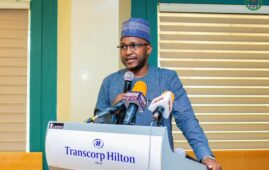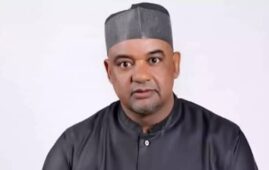By Zhang Penghui, People’s Daily
The team lead for the WHO-China joint mission on novel coronavirus Bruce Aylward on Tuesday praised China’s agile disease containment effort at a press conference in Geneva, Switzerland, saying this has not only largely reduced the new infections in the country, but also earned valuable time and offered experiences for other countries to get prepared.
Aylward introduced the mission’s trip to China, shared China’s experiences in combating the virus, and made suggestions on global epidemic control.
The WHO-China joint mission on novel coronavirus consists of 25 Chinese and foreign experts who went for field investigations to Beijing, Guangdong, Sichuan and Hubei during their 9-day stay in China. They conducted comprehensive and in-depth investigation into the epidemic situations, control measures, treatment, community-level prevention and scientific research in the country and relevant provinces, and submitted a report to the Chinese government and WHO.
Aylward said China has made remarkable achievements in combating the virus, with a sharp drop in the number of new cases of infection and patients in severe and critical conditions, which may have saved hundreds of thousands of people from infection.
According to the general law of epidemiology, said the WHO official, pointing to graphics of the epidemic statistics in China, there is always a rapid growth of cases after the outbreak of epidemics such as the novel coronavirus pneumonia. However, experts believe that China’s intervention has obviously changed the curves on the graphics. Every difference and every line represents a powerful decision by policymakers and tremendous efforts benefiting a large number of Chinese people, he said.
At the press conference, Aylward shared China’s effective approaches to contain the epidemic, in particular its mobilization and science-based measures. He believes that China’s strong mobilization and execution, as well as its people’s devotion and optimism have strongly facilitated the implementation of control measures.
“They are using big data, artificial intelligence (AI) in places,” Aylward said, adding that the country has also established fever clinics and online diagnosis systems. Besides, QR code has also been used as passes that indicate citizens’ health conditions.
Sharing what he saw in China, Aylward introduced that some Chinese medical staff working on the frontline even dropped off in the meetings with the joint mission because of the exhausting work. He was also impressed by the medical teams across the country that entered Hubei for assistance taking personal protective equipment and medical devices, with some hospitals even being taken over, which is unimaginable in other countries.
He used “ghost town” to describe Wuhan as citizens stayed at home to contain the spread of the virus. “But behind every window in every skyscraper there are people co-operating with this response,” Aylward said, adding that China has demonstrated phenomenal collective action and cooperation spirit.
Every person has a sense that they’re mobilized like in a war against the virus and they are organized, he said.
According to a data model offered by WHO’s partner experts, the measures taken by China to contain the flow of the people have slowed the spread the virus by 2 to 3 days in China, and 2 to 3 weeks in other parts of the world.
The novel coronavirus pneumonia is affecting many places around the world, and rapid response is called for to prevent the disease from becoming a pandemic, Aylward said, adding that China’s prevention and control proved that the epidemic is controllable with strict measures.
Aylward suggested that countries evaluate potential risks based on scientific approaches, prepare hospital beds, quarantine facilities, ICUs and test labs in advance, and conduct training for personnel for quick response. Besides, he also urged countries to pay attention to the spread of information and enhance communication with China for experiences, and called for cooperation from the public.









Leave a Comment